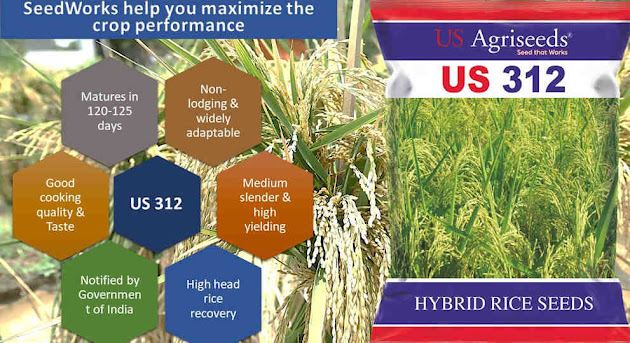The agricultural sector in India is the backbone of the economy, and the foundation of any successful farming venture is quality seed. High-quality seeds not only enhance crop yield but also contribute to the overall sustainability of farming. As the demand for better agricultural practices grows, the role of the best seed manufacturers in India becomes crucial in ensuring that quality is maintained at every stage of production. In this article, we explore how top seed manufacturers in India maintain strict standards to guarantee superior seed quality.
The Importance of Quality Seed in Agriculture
Seeds are the first step in the agricultural production cycle. The genetic makeup of the seed influences its potential for growth, resistance to diseases, and adaptability to different climatic conditions. Therefore, ensuring the quality of seeds is paramount for farmers, as it directly impacts crop productivity, food security, and economic stability. The best seed manufacturers in India recognize this importance and take every measure to ensure the seed quality meets the highest standards.
Seed Selection: The Starting Point for Quality
The journey to superior seed quality begins with careful seed selection. The best seed manufacturers in India work with experts to choose the best parent lines for hybrid or pure seeds. These seeds are selected based on various traits such as yield potential, resistance to pests and diseases, and drought tolerance. The process is highly scientific, as it involves rigorous testing and cross-breeding to produce superior seeds with optimal characteristics for farmers.
Adherence to National and International Standards
Seed manufacturers in India are subject to national and international regulatory standards. The National Seed Association of India (NSAI) and other governing bodies set stringent guidelines that all seed producers must follow. These standards cover various aspects such as seed purity, germination rates, and packaging. By adhering to these guidelines, seed manufacturers ensure that their products are of the highest quality, giving farmers confidence in the seeds they plant.
Advanced Seed Processing Techniques
Once the seeds are harvested, they undergo a series of processing steps to maintain their quality. These processes include cleaning, drying, grading, and coating. The best seed manufacturers in India use state-of-the-art processing techniques to remove impurities, enhance seed viability, and protect them from diseases and pests. Specialized machinery ensures that only the best seeds are selected for packaging and distribution, which is crucial for maintaining seed quality.
Rigorous Testing for Germination Rates and Purity
Seed germination rate is one of the most important factors in determining seed quality. The best seed manufacturers in India perform extensive germination tests to ensure that seeds have the potential to sprout and grow under optimal conditions. These tests are done in controlled environments, and only seeds with high germination rates are selected for distribution. Additionally, purity testing ensures that the seeds are free from contaminants such as weed seeds or other unwanted species, ensuring farmers receive only the seeds they intend to plant.
Use of Biotechnology for Enhanced Seed Traits
In recent years, biotechnology has played a significant role in seed manufacturing. The best seed manufacturers in India use biotechnological advancements to develop genetically modified (GM) seeds that have traits such as increased resistance to pests, enhanced nutrient content, and better adaptability to changing climatic conditions. These seeds are subject to rigorous testing before they are made available to farmers, ensuring that they meet both safety and quality standards.
Seed Storage and Packaging
Proper storage and packaging are essential for maintaining the quality of seeds. Seeds are highly sensitive to environmental conditions such as temperature, humidity, and light. The best seed manufacturers in India invest in high-quality packaging materials that protect the seeds from moisture, contamination, and mechanical damage during transportation and storage. Additionally, the packaging includes important information such as the seed variety, sowing instructions, and best-before dates, helping farmers to use the seeds at their peak potential.
Focus on Sustainability and Environmental Impact
Sustainability has become a key focus for the best seed manufacturers in India. By promoting the use of eco-friendly practices, such as producing organic seeds or using fewer pesticides in seed production, these companies help ensure that agricultural practices are sustainable in the long run. Furthermore, many seed manufacturers are working towards reducing their environmental footprint by implementing energy-efficient systems and waste reduction programs in their production processes.
Continuous Research and Development
The seed industry in India is constantly evolving, and to stay ahead, the best seed manufacturers invest heavily in research and development (R&D). R&D plays a crucial role in developing new seed varieties that are more resistant to diseases, pests, and extreme weather conditions. Manufacturers collaborate with agricultural research institutions and universities to keep improving seed quality and to adapt to changing agricultural needs. This ongoing investment in innovation helps ensure that the seeds provided to farmers are the best possible for every season.
Conclusion
In conclusion, maintaining seed quality is a meticulous process that requires careful attention to every detail, from seed selection to packaging and distribution. The best seed manufacturers companies in India implement a wide range of practices, from advanced processing techniques to rigorous testing, to ensure that their products meet the highest standards. By focusing on quality control, sustainability, and continuous research and development, these companies are not only improving agricultural productivity but also contributing to the overall growth and sustainability of the farming sector in India. Through these efforts, they provide farmers with the tools they need to succeed and achieve higher yields year after year.

Comments
Post a Comment